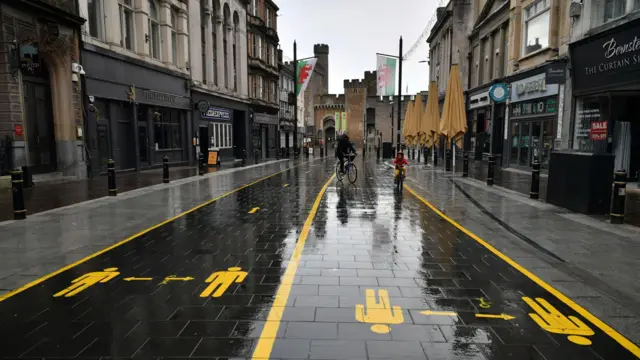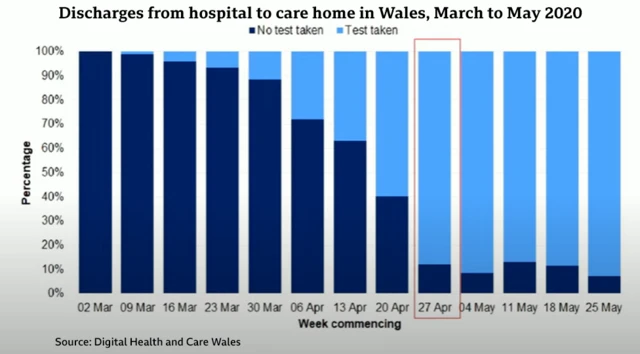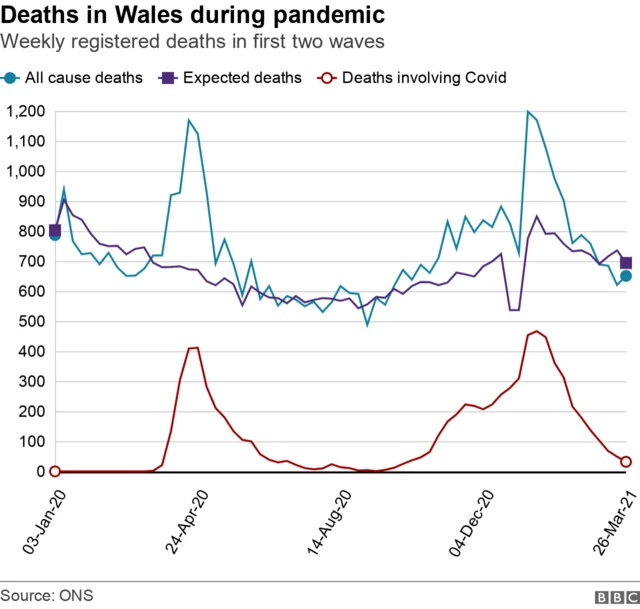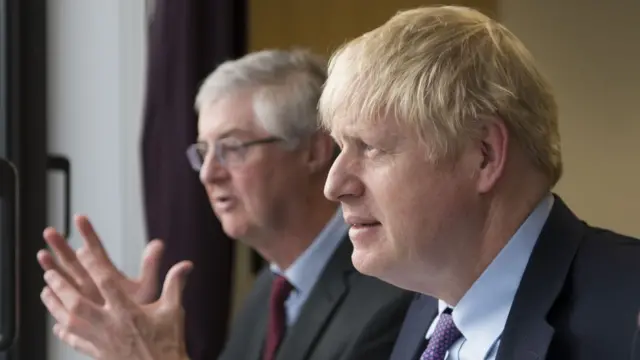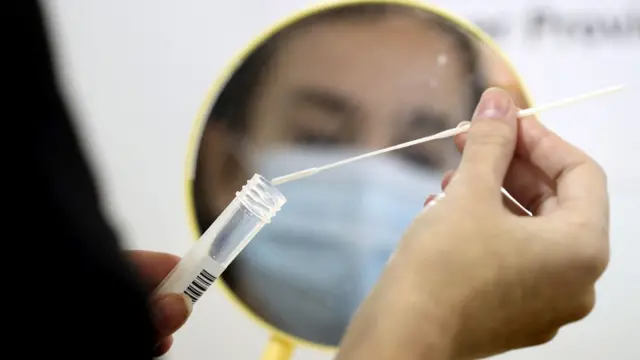Goodbye for nowpublished at 17:16 GMT 29 February 2024
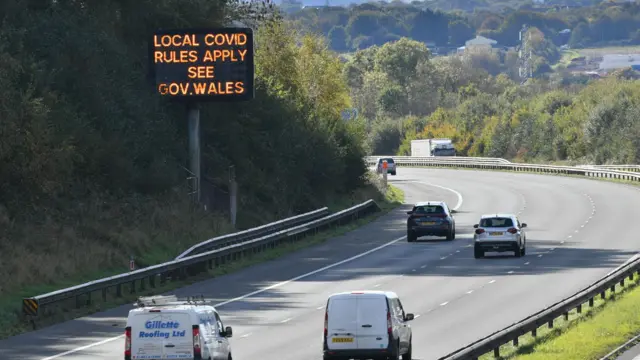 Image source, PA Media
Image source, PA MediaThe inquiry heard that the Welsh government only found out at the last minute that it was responsible for pandemic decision-making
The Covid inquiry in Wales has wrapped up for the day, and here are some of the main developments from its third session:
- Prof Dan Wincott, an expert in Welsh government decision-making, told the inquiry that structures to help the Welsh and UK governments work together are “much less well-developed than would be optimal in a system like the UK”. He said the Welsh government is “constrained” by the devolution settlement and can lead to “confusion over accountability”
- Wincott said the Welsh government and First Minister Mark Drakeford only learned Wales would take charge of its own Covid response three days before the UK-wide lockdown was introduced by Boris Johnson.
- Prof Sir Ian Diamond, chief executive of the UK Statistics Authority, went through the number of deaths involving Covid in Wales – especially how the second wave hit Wales hard. He said there was a “very strong peak of deaths” in April 2020, largely driven by Covid
- Dr Robert Hoyle, head of science at the Welsh government, also said that debate within the technical advisory group – its scientific advisory body – was not met with enough “really hard challenge” from members, who also "did not have the life experiences of people who lived in the more deprived areas" where compliance with restrictions was low.
